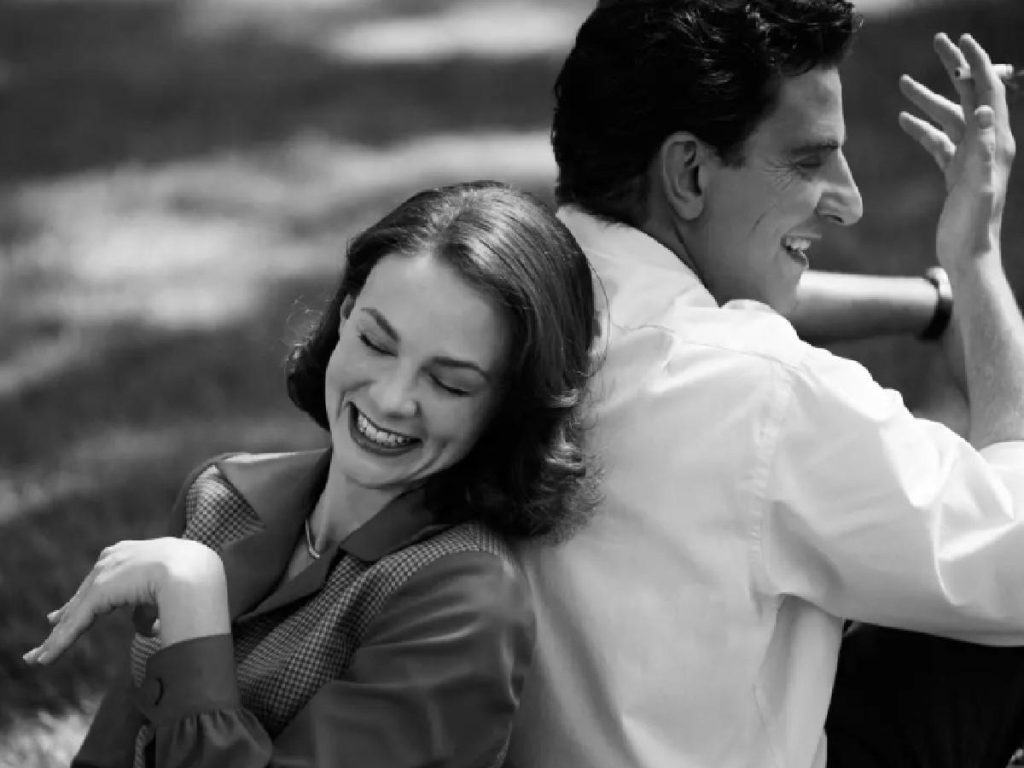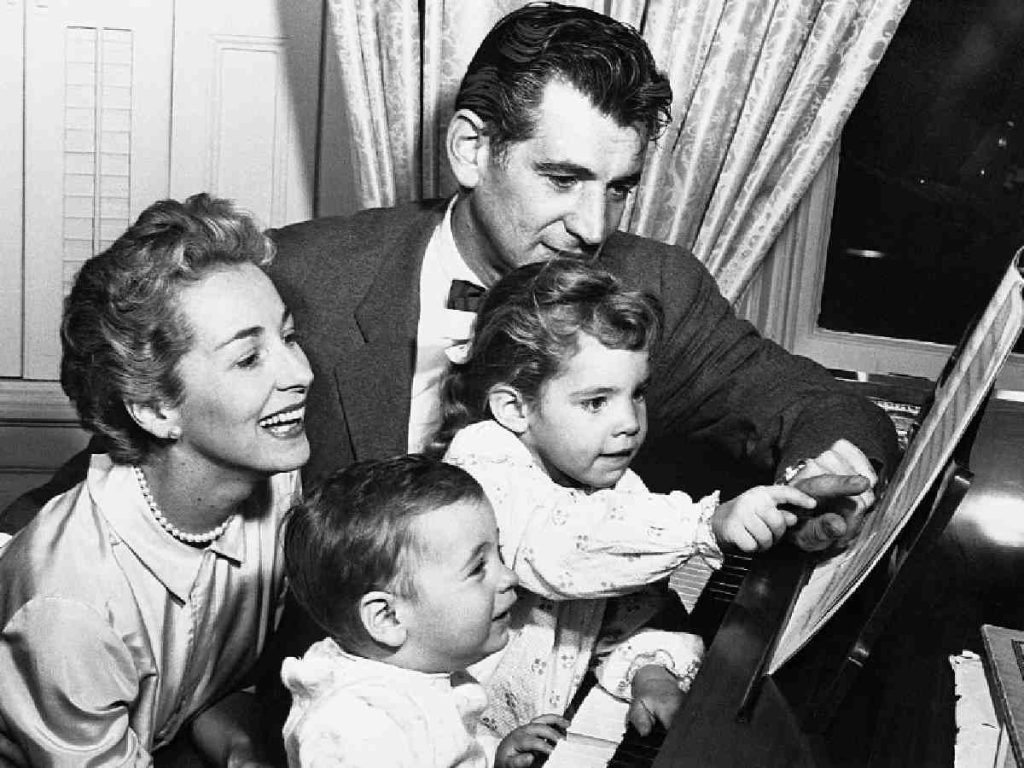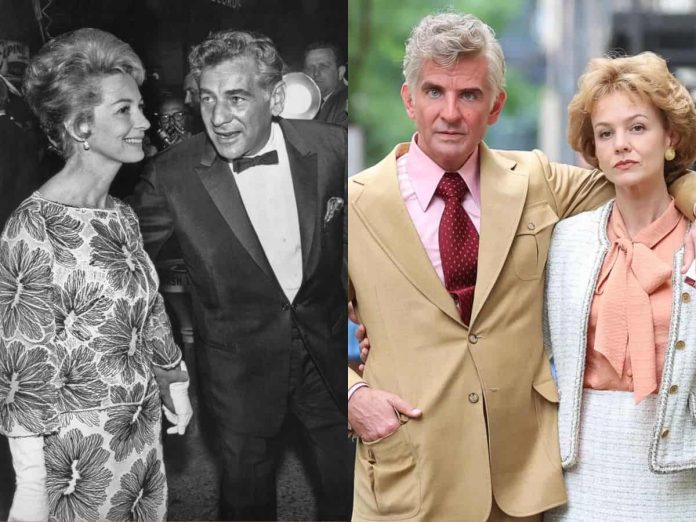The release of ‘Maestro’, starring Bradley Cooper as the musical maestro Leonard Bernstein, has answered some questions about his life but has left many others unanswered. The film covers not just Bernstein’s musical genius, but also the saga of his love, secrets, and all the drama it entails.
But movies based on real-life stories of celebrities often leave the viewers wondering how much of it is true. The movie delicately portrays Bernstein’s 26-year marriage to Felicia Montealegre, played by Carey Mulligan. But here’s the twist – it doesn’t just stop at the lady love of his life, but extends further to his love for men and music. But is everything in the movie true to its core?
‘Maestro’ Explores Bernstein And His Lady Love Felicia

From what we know to be true, the leading lady Montealegre wrote a letter to Bernstein early in their marriage, telling him that she would be okay with him being interested in men. Something along the lines of: “Hey, I know you’re into guys, and that’s cool. Let’s make this work, darling“.
“I am willing to accept you as you are, without being a martyr…let’s try and see what happens if you are free to do as you like, but without guilt and confession,” is what the letter specifically had written in it, according to the Time Magazine.
She did not stop at just that but also went on to give him the green light to explore his attractions without guilt or drama. Fairly enough, it can be said that the couple had an open marriage in the 1950s, with three children to raise amid the high drama.
In the film, ‘Maestro’, Cooper and Mulligan bring this unconventional love story to life exceptionally well. Mulligan’s Montealegre adds a pinch of sacrifice to the movie as her character compromises a lot for the man she loves by playing a domestic diva.
In case you missed: Bradley Cooper Net Worth, Career, Wife, House And More
Bernstein’s Sexuality And The Stigma Around It

Historically speaking, American society in the 1940s and ’50s was not as open-minded as it is today. A gay superstar would not have been embraced by his audience. He would, in fact, be canceled as a sinner.
So when rumors over Bernstein’s sexuality started hitting the headlines, his mentor, the Russian conductor Serge Koussevitzky, told the star to get married to Montealegre. This essentially was a move for damage control.
Fast forward to the ’70s, Bernstein declared he wanted to live openly as a gay man. The movie captures this evolution fairly well and even decorates it with a heartfelt speech about how it is important to live one’s life on one’s own terms before death knocks on the door.
What surprisingly persists through all of this is the love between Bernstein and Montealegre. The movie shows that though Bernstein had his fair share of romantic adventures with men he was attracted to, he would go back to the lady of his life.
Now many may contend it’s unfair to the woman. But hey, love being monochromatic is quite fair a possibility to tone down that judgment.
‘Maestro‘, thus, serves as a beautiful tribute to the man’s love for his music, wife, and men alike.
You might also like to read: What Is Bradley Cooper’s ‘Jewface’ Controversy?






